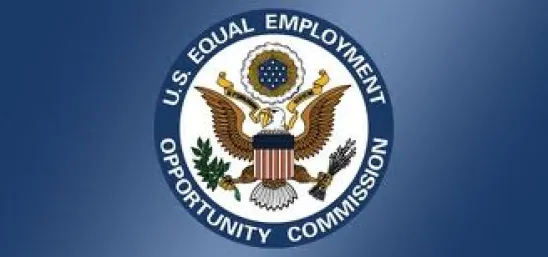It’s a not-so-uncommon scenario for employers.
-
An employer terminates an employee.
-
The employee files a charge with the U.S. Equal Employment Opportunity Commission (EEOC) alleging her termination was the motivated by unlawful discrimination.
-
The EEOC asks the employer to provide a comprehensive response to the charge, supplemented with voluminous documents requested by the agency in connection with its investigation, typically with a deadline of just a few weeks for the employer to submit its response.
-
The employer, at its considerable expense, provides its timely response to the EEOC.
-
The matter then sits…and sits…and sits, at the EEOC, sometimes for years, with no action being taken.
-
After the matter is all but forgotten, the EEOC notifies the employer that it has found reasonable cause to believe that discrimination occurred, and that absent resolution through conciliation, it intends to file a lawsuit against the employer in federal court on behalf of the long-ago-departed employee.
-
The employer, now confronting a lawsuit, discovers that many of the personnel involved in the decision to terminate the employee have long ago since departed, making it difficult if not potentially impossible for the employer to prepare and present its defense to the EEOC’s lawsuit.
This doesn’t seem fair, does it? The EEOC ought not to be able to obtain a strategic litigation advantage due to its delay, for reasons unexplained, in taking action on a charge, which in turn has put the employer at an enormous disadvantage in defending against the EEOC’s claims once it finally got around to filing its lawsuit.
This was precisely the situation in which an employer found itself recently in an Arizona federal court. The facts of the case were essentially as set out above, except the delay here was not just a year or two. In this case, nearly seven years had passed since the terminated employee filed her charge alleging she was terminated due to her pregnancy and the EEOC’s filing of lawsuit on her behalf.[1]
The employer sought to dismiss the EEOC’s complaint (or, alternatively, sought summary judgment), asserting the equitable defense of laches, which is a legal doctrine that a party cannot assert a claim if it has unreasonably delayed in bringing that claim and the adverse party (here, the employer) has been prejudiced by that delay. The employer in this case argued that the EEOC’s seven-year delay in filing the lawsuit was unreasonable, and that it was prejudiced by this delay because six key witnesses who were directly involved in the employee’s termination had, at various times over that period, left employment with the employer.
In deciding the matter, the court chose to first analyze the prejudice issue, as if it concluded that the employer in fact was not prejudiced by the delay, whether the period of the delay (seven years) was unreasonable would not matter. In evaluating the employer’s prejudice argument, it found that although the six key witnesses had left the company, that alone did not establish prejudice. Rather, the court explained, the employer had to demonstrate that the witnesses were unavailable and that their unavailability resulted from the EEOC’s delay.
The employer asserted that it had no reasonable way to contact its former employees, but the court rejected that position, explaining that the employer had not demonstrated that to be the case, noting that it had not even demonstrated that it had attempted to reach the former employees using their last known contact information and had been unsuccessful. It further noted that the EEOC had successfully contacted one of the former employees as recently as 2019 – using contact information provided by the employer itself – suggesting that the employer’s argument that these witnesses could not be reached was suspect. Finally, the court rejected the argument that the employer was prejudiced by the EEOC’s delay because its witnesses’ memories would have faded over the course of seven years, stating that the employer’s generalized statements about faded memories were insufficient. (This begs the question, of course, that if the employer indeed could not locate its former employees, how then could it present the evidence the court faulted it for not presenting that those employees no longer remember the facts and circumstances of the termination decision at issue?) The court therefore denied the employer’s motions and permitted the EEOC to move forward with its prosecution of its claims.
The takeaway here is that employers confronted with a similar scenario must do more than merely assert that an EEOC delay in bringing claims was unfair. Had the employer in this case been able to show that it undertook reasonable efforts to contact its former employee witnesses, but was unsuccessful in those efforts, and/or that if it was successful in reaching some of them but that they specifically stated that they no longer recall the events at issue due to the passage of time, the outcome here may well have been different.
[1] Equal Employment Opportunity Commission v. LogistiCare Solutions, LLC, et al.; No. 20-cv-00852-GMS-PHX (Dkt. 22; Nov. 18, 2020).




 />i
/>i

